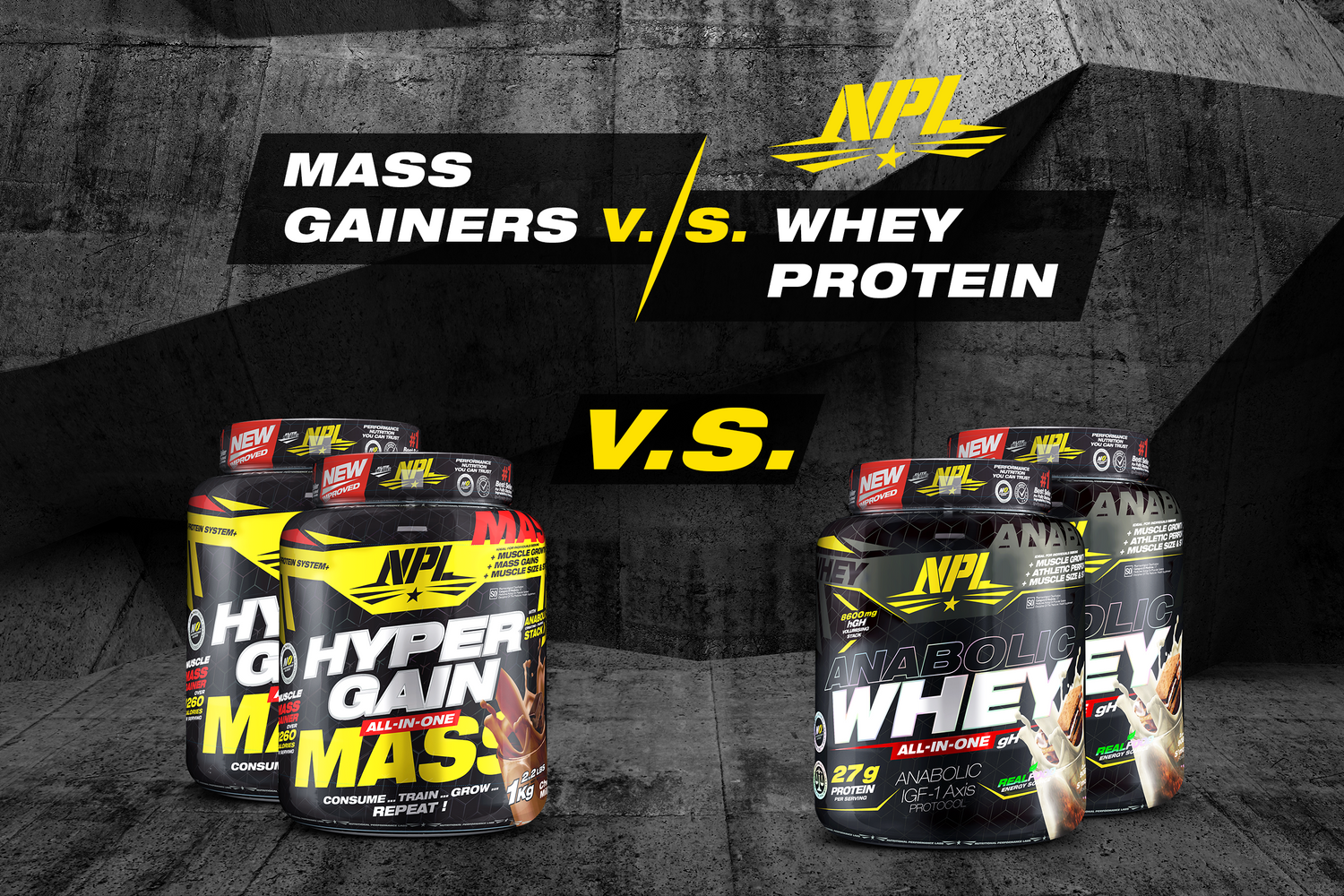Mass gainer vs Whey Protein

Mass gainers and whey protein, the essential supplements utilised by beginner and advanced gym goers alike. Each supplement offers its own unique advantages to you depending on your end goal, are you trying to bulk up and add size and mass? Or are you trying to support lean muscle mass growth? We take you through some of our mass gainers and protein powders to help you make an informed decision about which one works best for you on your journey of gains!
Mass Gainer:
Firstly, what is a mass gainer? Simply put it is a supplement with a good mix of macros needed to promote muscle growth, such as protein, carbohydrates, and fats. The entire purpose of a mass gainer is to increase caloric intake to promote weight gain, allowing your body the necessary nutrients needed to build muscle while adding size.
Due to this, mass gainers will often contain considerably more protein than a lean whey protein powder. Each mass gainer will be dependent on your end goal. Pro Gains contains 50g protein, and 82g of carbohydrates, with added BCAA’s and L-glutamine for added lean muscle mass and recovery.
Alternatively, our Hyper Gains is over 1250 calories per serving, with roughly 30g of protein and 290g of carbohydrates to support hard gains. Hyper Gains is perfect for those who struggle to see an increase in weight during exercise and is designed to support hardcore increases in size.
Whey Protein:
Whey protein comes in various forms, and each has their own use, there are:
- Whey concentrate such as Platinum Whey
- Whey Isolate such as 100% Whey Isolate, or
- Micellar Casein protein such Micellar Casein.
So, what is the difference?
Whey concentrate which is a whey protein blend made from whey which contains anywhere from 70-90% protein, the rest of the calories come from nutrients and fats, resulting in slightly more carbohydrates than a whey isolate.
Whey Isolate calorie content is almost all protein with roughly 95% being entirely composed of protein, whey isolate is usually lactose-free and low in fat and carbohydrates.
Micellar casein offers longer absorption than typical whey protein, casein protein provides a steady stream of amino acids to muscle cells for up to seven hours. This ensures positive nitrogen retention in muscles for much longer periods compared to whey protein.
Which is right for me?
If you struggle to pack on the pounds and need a supplement that contains high levels of carbohydrates and calories? Then a high gainer will be for you, to assist with adding size while supporting lean muscle building.
If you want to support lean muscle mass and cut down, you’re looking for either a whey isolate or concentrate, depending on carbohydrates needs. Micellar casein is a great morning and early afternoon protein supplement that supports extended periods of protein absorption and synthesis.
If whey protein isn’t for you, a vegan option containing pea, rice, hemp seed, chickpea and pumpkin seed protein is also available, with 22g of protein our Vegan Protein is the perfect vegan protein supplement.
For beginner lifters, this tip is for you: Spend a few months bulking with a mass gainer and cut down using whey isolate or a hybrid whey/casein blend. The mass gainer will add serious size and muscle mass which will be visible after the cut. Happy lifting!!
Follow us on our Instagram and Facebook pages for more useful tips and product information.
References:
https://healthyeating.sfgate.com/mass-gainers-vs-protein-powder-10114.html
https://prolab.com/blog/the-mass-gainer-vs-whey-protein-showdown-/






